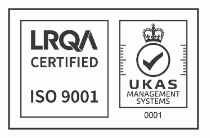In the ever digitalising world, educational apps are increasingly transforming the way teachers create their lesson plans and teach, and also how students learn new information. These tools are both enhancing and personalising learning experiences, making it more engaging, and if used correctly, improve learning outcomes for students.
As partners of the Digital Innovation Lab (Innovalab) project, AcrossLimits recognises the potential added value apps have on the educational sector and their role in driving forward Universal Design principles.
Traditional learning methods often rely on rigid structures, making it difficult for students with different learning styles. Apps provide a flexible, interactive, and scalable approach to education, ensuring that knowledge is accessible, and can serve as an effective supplement to practices which are already in use. Some of the approaches apps can aid in include:
- Personalised Learning Paths – Apps like Khan Academy and Duolingo adapt to the learner’s pace and needs, offering tailored content, exercises, and feedback.
- Gamification & Engagement – Platforms like Quizlet and Kahoot! turn learning into an interactive experience with quizzes, challenges, and game-based activities.
- Collaborative Learning – Apps like Microsoft Teams and Padlet allow learners and educators to interact, share resources, and collaborate beyond the classroom.
The Covid-19 pandemic had served as a catalyst for the experimentation with, and widespread adoption of educational tools as a way to adapt the reality of the time, and the trend of adoption appears ongoing.
As partners in the project, we see digital tools as catalysts for change. Whether through adaptive learning apps, virtual classrooms, or accessibility-focused platforms like ConnectU, we believe that education must evolve with the needs of its learners. Educational apps are not just about digitising content; they create opportunities for meaningful, engaging, and inclusive learning experiences.



